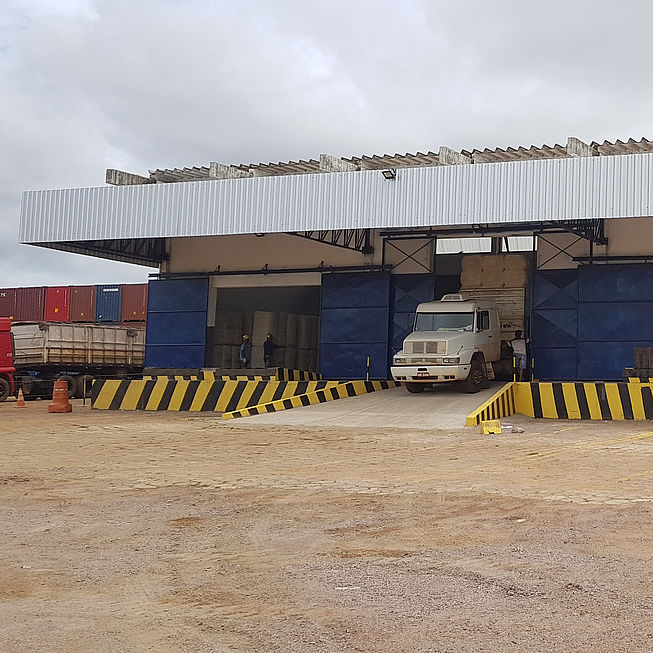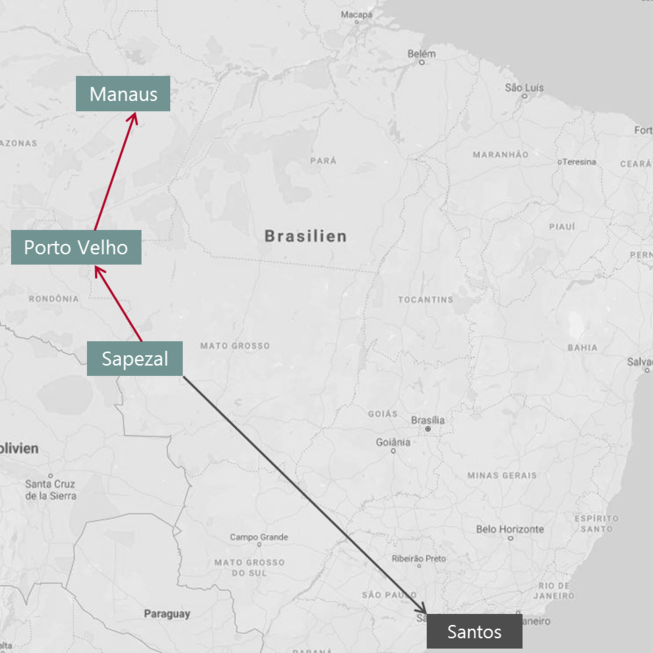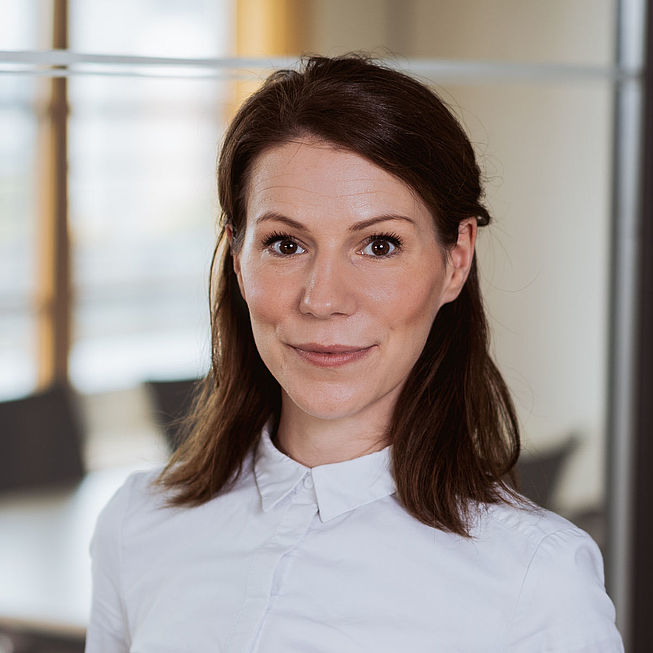The solution FMS has designed basically consists of making good use of these available empty containers and creating space for exports through an inland location called Porto Velho, Rondônia.
The following can be seen in the image:
- The state with the largest cotton production in Brazil is Mato Grosso (Sapezal area).
- The trucking distance to Santos is 2,100 km.
- The trucking distance to Porto Velho, Rondônia, is 950 km.
- Containers go by barge from Porto Velho to Manaus.
- In Manaus, containers are transshipped to their mother vessel and exported through Panama.
Through our partners in Porto Velho, we have developed a bonded warehouse that is able to operate with cotton bales; hired operators from Santos who are experienced in using forklifts with cotton stay in Porto Velho and train the local staff. We also presented the project to the Ministry of Agriculture, Livestock and Food Supply and to customs inspectors before we started operating, and we prepared the area for operations.
Result
Since December 2018, FMS has been operating at a steady level throughout the low season.
With one point of contact and one unified invoice, FMS performs stuffing, inspection, and customs clearances, as well as handling phytosanitary certification in Porto Velho and sea freight to final destinations.
Containers are loaded onto the barge in Porto Velho, already sealed and cleared with our lading bill from Porto Velho until the final destination.
This solution has already proven successful with not only cotton, but also lumber and iron ore from the region. We are also researching possibilities for sugar, coffee, and soybeans.
If you would like to find out further details, or if you are interested in this new route, please do not hesitate to contact our FMS Brazil team: Brazil @ FMS



![[Translate to Spanisch:]](/fileadmin/_processed_/8/d/csm_fms_office_lima_skyline_715c64c8de.jpg)
![[Translate to Spanisch:] [Translate to Spanisch:]](/fileadmin/_processed_/6/2/csm_fms_article_document_exchange_small_6c5b774d7c.png)
![[Translate to Spanish:] [Translate to Spanish:]](/fileadmin/_processed_/d/a/csm_fms_breeze_pressrelease_july_e3b9809cdd.png)